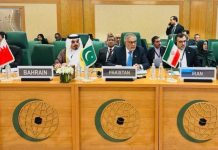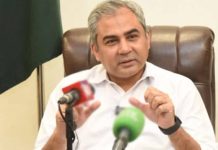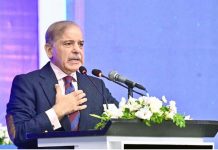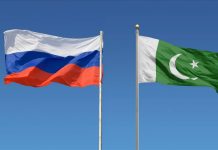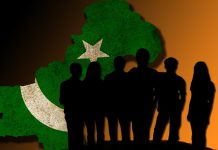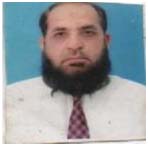
Dr. Syed Mehboob
Political and Economic Analyst
http//:www.thenewslark.com
drmehboob.thenewslark@gmail.com
Sincere, intelligent and far sighted leadership always keep education, science and technology on its top priorities. It knows that no country can develop, prosper, even cannot survive unless it gives due importance to education, science and technology. Indonesia is a country is which made significant advancement in science, technology and education.
Indonesian leadership believes education is the right of each and every child regardless their caste, creed, religion or income group. Every possible effort has been made to ensure that no child is deprived from education and every child have access to quality education. Teachers and faculty members are very important part of education planning and government is trying to train and facilitate teachers in every possible way.
Indonesian government had launched the Guru Penggerak (Teacher Motivator) pilot programme, which aims to build a stronger education ecosystem focused on student learning. As part of the pilot, Indonesian government is providing 2,800 teachers from 56 districts supporting children’s all-round development and acting as a resource for other teachers. The government of Indonesia’s plan is to reach 400,000 teachers over the period of five years.
To promote education all possible technologies and ways are adopted to enhance students’ knowledge and skills by using technologies like internet, tv channels, WhatsApp etc. In his speech following his reelection in 2019, Indonesian far sighted president, “Joko Widodo declared his aim to develop and adaptive, productive, innovative, and competitive Indonesia that will make the country of the strongest in the world, highlighting that the key to this more prosperous future in developing human resources.
President Joko Widodo stressed the need to adapt an education and training system that can enhance the well-being of its citizens, improve its human capital, and achieve its economic and development goals.
To achieve president’s vision, a comprehensive change in the education and training system has been introduced to ensure full participation of all students.
Education system is designed to focus on protecting and building human capital by increasing the skills, equity, and accountability for learning.
Education and human development are central to the Indonesian government’s overall development agenda, Since the early 2000s, Indonesia has implemented a broad range of education reforms, including decentralizing much of the education system, improving the achievement of teacher qualifications, and increasing education spending, up an estimated 200 percent in real terms from 2002 to 2018. These reforms have expanded access to education, particularly among disadvantaged children. The additional resources for the sector mandated by the constitutional amendment of 2002 successfully financed the expansion of education services and increased the number of teachers for new school and classroom.
Today, Indonesia’s education system is the world’s fourth largest. The formal system collectively employs 3,300,000 teachers and educating 53,100,000 children in grade 1 to 12 under both the Ministry of Education and Culture (MoEC) and Ministry of Religious Affairs (MoRA). An additional 231,446 early childhood education services support the early learning of 7,400,000 children. About 4,670 higher education institutions provide services to approximately 8,000,000 students. The nonformal vocational training system comprises more than 4,000 institutions under the supervision of MoEC and the Ministry of Manpower, as well as some line ministries.
Indonesia ranked 61st on the 2023 Global Innovation Index report up from 87th in 2021. Historical examples of scientific and technological developments include the paddy cultivation technique treasuring, which is common in Southeast Asia, and the Pinisi boats by the Bugis and Makassar people. In the 1980s, Indonesian engineer Tjokorda Raka Sukawati invented a road construction technique named Sosrobahu that later became widely used in several countries. The country is producing passenger trains and freight wagon with its state-owned company. The Indonesian Railway Industry (INKA), and has exported trains abroad.
Indonesia has a long history of developing military and small commuter aircraft. It is the only country in Southeast Asia to build and produce aircraft. The state-owned Indonesia Aerospace Cormorant (PT. Dirgantara Indonesia) has provided components for Boeing and Airbus. The company also collaborated with EADS CASA of Spain to develop the CN-235, which has been used by several countries. Indonesia has also joined the South Korean programme to manufacture the 4.5 generation fighter jet KAI KF 21 Boramae.
Indonesia has a space programme and space agency, the National Institute of Aeronautics and Space (Lembaga Penerbangan dan Antariksa Nasional, LAPAN). In the 1970s Indonesia became the first developing country to operate a satellite system called Palapa, a serious pf communication satellite owned by Indosat. The first satellite, PALAPA A1, was launched on 8th July,1976 from the Kennedy Space Centre in Florida, United States. As on 2049, Indonesia has launched 18 satellites for various purposes.
Education in Indonesia is compulsory for twelve years. Parents can choose between state-run, non-sectarian schools or private or semi-private religious (usually Islamic) schools, supervised by the ministries of Education and Religion, respectively. Private international schools that do not follow the national curriculum are also available. The enrolment rate is 93% for primary education, 79% for secondary education and 36% for tertiary education. The literacy rate is 98% and the government spends about 3.6 % of GDP on education.

